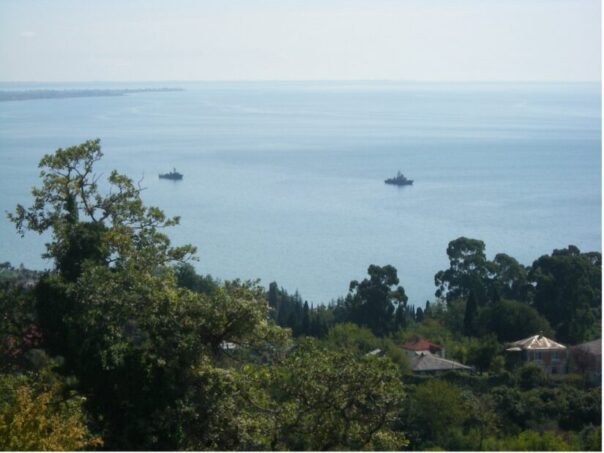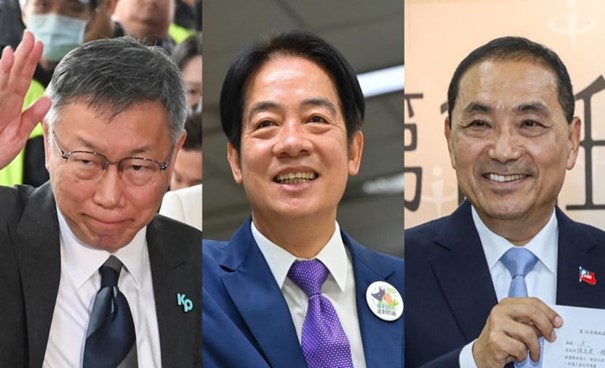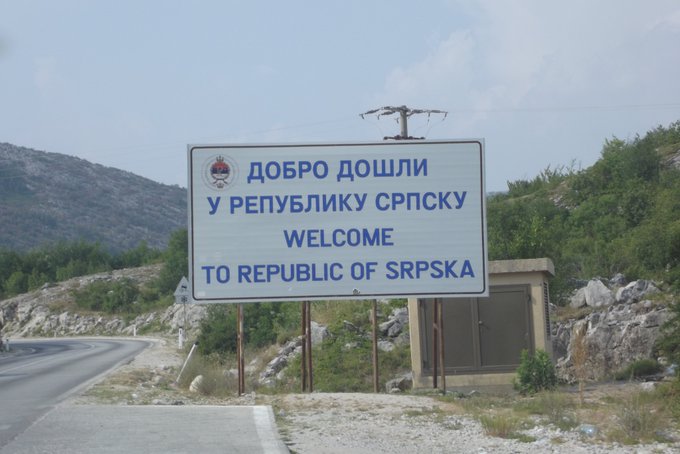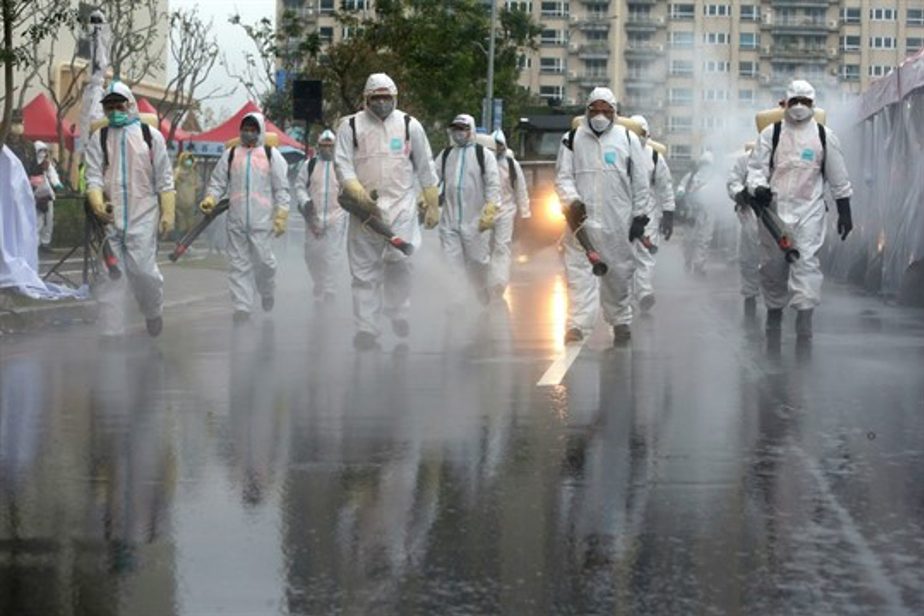Left Out in the Cold? The Crisis in Russian-Abkhazian Relations Leaves Abkhazians Scared of the Future
A storm erupted on Abkhazian social media on August 29: a leaked memo from an August 19 meeting between Aslan Bzhania, the president of the de facto state and Dmitry Kozak, the deputy head of the Russian presidential administration revealed direct political and economic pressure on the Abkhazian president to greenlight Russia-friendly decisions, triggering a domestic crisis and adding to Abkhazians’ worries about the future of the self-declared state that have been steadily growing since 2022 in light of the perceived rapprochement between Russia and Georgia. Subsequent developments have only aggravated Abkhazians’ fears, prompting them to ask how to save their relations with their strategic partner, and leading some to wonder if they could and should seek normalisation of the relations with Georgia after all.
The issue that seemingly kickstarted this surprisingly rapid public deterioration of the Russian-Abkhaz relations, was opposition in Abkhazia to a string of Russia-backed decisions perceived as clearly disadvantageous to Abkhazia: ratifying an agreement on mutual recognition of court decisions, providing benefits for Russian investors, and most importantly a proposed “Law on Apartments” that would have opened Abkhazia up for property ownership by foreigners. The law, first proposed in 2023 and strongly supported by president Bzhania, would have greenlighted the development of 100,000 new apartments categorized as commercial property, allowing to circumvent the long-established ban on selling real estate to foreigners. The law was rejected by the Abkhazian parliament in July of this year after widespread protests. Abkhazians had fears that the law would not only lead to the construction of luxury apartments in prime locations along the Black Sea coast that would be unattainable to the locals and threaten the local tourism industry, but that the owners of these apartments would, over time, gain citizenship and voting rights. Furthermore, Abkhazians specifically fear that approving the law would allow Georgians with Russian passports to start buying up Abkhazian land and real estate. This in turn feeds into the existential fear of Abkhazians of becoming a minority “in their own land” and losing not just their culture and identity, but also political control.

Image: Protest against a “Law of the Apartments” in Ochamchire on July 19, 2024 (Source: OC Media)
The issue of real estate ownership by foreigners is not new; removing the ban has been raised periodically by Russia. Admittedly, Abkhazia’s refusal to give in on this matter over the years has seen by many experts as a small sign of independent agency in the highly unequal relationship between Russia and Abkhazia. But evidently, Russia was not willing to let the matter go this time. The leaked meeting memo included a direct demand for Bzhania to present Russia with a list of the Abkhazian parliamentarians and opposition members opposing the legislation so that these people could be stripped off their Russian citizenship – something that would directly impact their ability to travel outside of Abkhazia. Furthermore, the memo threatened that Russia will halt financial aid to Abkhazia and will stop offering electricity on subsidised prices. Although the authenticity of the memo was initially debated, its veracity was confirmed after September 1, when Russia did indeed suspend financial aid to Abkhazia. Considering that Russia finances about 43% of Abkhazia’s budget and provides about 60% of its electricity, these steps have left Abkhazia scrambling to pay its public sector workers. Other (non)actions have aggravated concerns among Abkhazians that the wind is changing: on August 26, Putin failed to send a customary congratulatory message on Abkhazia’s “Day of International Recognition”, and an intergovernmental commission was cancelled in late August. These developments have triggered a significant and a rather extraordinary crisis in the Abkhazian-Russian relations.
These developments naturally raise the question of what has changed? Abkhazia has, after all, positioned itself as an unwavering ally to Russia through the years. In February 2022, Abkhazia followed Russia’s lead in recognising the Donetsk and Luhansk People’s Republics and it has been a vocal supporter of Russia’s full-scale war against Ukraine, down to copying the language of a “special military operation” and putting the blame for the war on Ukraine/the West. Notably, from November 2021 to May 2024, Abkhazia’s Ministry of Foreign Affairs was headed by Inal Ardzinba, who had previously worked as a deputy of Vladislav Surkov, aid of the President of Russia. In this role, he dealt with issues related to Ukraine, including the Donetsk and Luhansk People’s Republics. As Abkhazia’s foreign minister, he continuously prioritized cooperation with Russia, isolating Abkhazia from contacts with the West. But support for Russia is not only found on the elite level. For example, on 11 March 2022, about 3000 people participated in a public rally in support of Russia in Abkhazia’s capital Sukhumi, and an estimated 100 Abkhazians are fighting in Ukraine alongside Russians, although the exact numbers are unknown. During the last Russian presidential elections in March 2024, 94% of Abkhazians eligible to vote supported Putin.
One could of course argue that the reason for the current pressure is rather prosaic: with Western sanctions on Russia and Russians, they are more limited in their holiday destinations and investment outlets. Although Abkhazia is rather small, the “Law on Apartments” could serve as an opening to further investment opportunities in the area, for example in the energy sector, giving Putin’s administration some points domestically as well as deepening the control that Russia has over the territory. Another explanation put forth is that the situation has been overexaggerated by Russia as it provides a convenient excuse to reduce budgetary support for Abkhazia, therefore lessening the strain on Russia’s own state budget. In truth, Russia has hinted for years that Abkhazia should start weaning itself from this support. Still, this argument fails to explain why the break has been so abrupt and with so much controversy.
Many Abkhazians fear that Russia’s behaviour is a further sign that Russia might prepare for abandoning Abkhazia in the longer term, pointing to the changing Georgian-Russian relations. While in 2022 and 2023, some Abkhazians worried about the possibility of a change in government in Tbilisi which might lead to the opening of a second front against Russia through Abkhazia, their worries have since shifted more towards the scenario where the current Georgian government’s rapprochement with Russia will be rewarded by returning control of the secessionist territories over to Tbilisi. This scenario could still be considered a win for Moscow if it is able to ensure that Russia retains its significant economic and some territorial control in Abkhazia, as it would be maintaining a lasting influence in Georgia’s domestic affairs through these links. After all, this echoes what Russia tried to achieve with the Kozak Memorandum in Transnistria and Moldova in 2003, and with the Minsk II Agreements in Ukraine in 2015 – in both cases, Russia indicated willingness to support the territorial integrity of Moldova and Ukraine respectively, but wanted to ensure that it would maintain permanent influence over the central governments in Chisinau and Kyiv.

Image: Russia’s war ships stationing close to Novyi Afon, Abkhazia in September 2009 (Source: Eiki Berg)
However, it is much more likely that while Russia is ready to tangle Abkhazia as a carrot to ensure Georgia’s cooperation, it would ultimately want to keep Abkhazia to itself – simply without any local opposition to its plans and needs. While Russia’s Minister of Foreign Affairs Sergey Lavrov stated that Russia would be willing to aid Georgia in normalising its relations during a press conference at the end of September, there are no rational reasons to believe that Russia would be willing to simply step aside. On the contrary, following the worsening of relations with Armenia, having a military presence in Abkhazia and South Ossetia is increasingly significant to Russia. In addition to the 7th Military Base in Bombora and Russian border guards overseeing Abkhazian borders, in October 2023 it was announced that Russia would also start constructing a new military naval base in Ochamchire, located only about 30 km from Anaklia where Georgia has plans to develop its own modern deep-water port. Ochamchire would be the southernmost military bulwark for Russia whose Black Sea Fleet has been under constant Ukrainian attacks. The port itself is not deep enough for the largest warships, but can still serve as an important link in Russia’s supply and logistics operations. Another significant development project was announced in 2023: the revival of the Sokhumi Airport with the aid of Russian investors. While the project was announced as an opportunity to further boost tourism in Abkhazia, some experts worry about potential military use, especially given that the Russian investor was revealed to be the son of Rashid Nurgaliyev, deputy secretary of the Russian Security Council and former interior minister who has no previous experience in this sector.
For Abkhazians who for years have wanted to believe that Russia will protect their independence in return for loyalty, the realisation that their needs will always be sacrificed to Russia’s interests has been an extremely bitter bill to swallow. The developments have also left them scrambling for the best way forward. However, despite initial signals that president Bzhania could be forced to resign over the August developments, he has been able to retain his office and even his previous course of kowtowing to Russia. Although the Abkhazian parliament adopted a law in early 2024 forbidding the government to sign international agreements without parliamentary approval, the president has managed to strongarm the parliament to follow his lead. On September 25, he managed to push through the ratification of the Russia-Abkhazia agreement on mutual recognition of court decisions in economic cases, and on October 30, Abkhazia’s Minister of Economy signed an agreement on Russian investments, despite the draft agreement still being under discussion in the Abkhaz parliament, where it faced opposition due to the unprecedented concessions offered to Russian investors. There are also claims that the government is trying to revive the Law on Apartments through pressuring public employees to appeal its dropping on the account of needing to improve relations with Russia.

Image: Abkhazia’s Minister of Economy Kristina Ozgan and Russia’s Minister of Economic Development Maksim Reshetnikov after signing an agreement on Russian investments in Abkhazia, October 30, 2024 in Moscow (Source: JAM News)
One question remains: are any other options or opportunities still possible for Abkhazia, for example, the warming of relations with Georgia on their own terms? The new foreign minister Sergey Shamba, in office since August, has signalled a more cooperative and anti-isolationist outlook than his predecessor Ardzinba, including reiterating the importance of continuing with the Geneva International Discussions – the only forum after the event sin August 2008 where the Abkhaz and Georgian delegations still meet. During the recent parliamentary elections campaign in Georgia, Bidzina Ivanishvili, the billionaire founder of the Georgian Dream, raised some eyebrows with his statements regarding Georgia’s culpability in the 2008 war and a possibility of issuing an apology to South Ossetia. Abkhazia’s Ministry of Foreign Affairs responded to these remarks, expressing openness to reconciliation, although foreign minister Shamba emphasised later that actual issuing of the apology would be the necessary first step towards reconciliation.
Yet there are three factors that curb the possibility of this Abkhaz-Georgian reconciliation. First, despite Ivanishvili’s words, Georgians at large are not ready for reconciliation if this would mean concessions on their side, and the current political crisis in Georgia does not provide a stable background for wider discussions on the topic. Second, the same reluctance to turn towards Georgia and Georgians can be observed in Abkhazia as well: for many, Russia has been considered such an important bulwark for years that changing directions is not easy. And third, even if some consider that the current leadership in Abkhazia is going too far and are hoping for a change in the next presidential elections to be held in early 2025, it will likely be too late by then to find alternatives to Russia given the number of cooperation agreements and concessions already made. Whether Abkhazia is able to continue as a nominally independent state or will be officially annexed into Russia, seems more and more irrelevant.
Author: Kristel Vits





